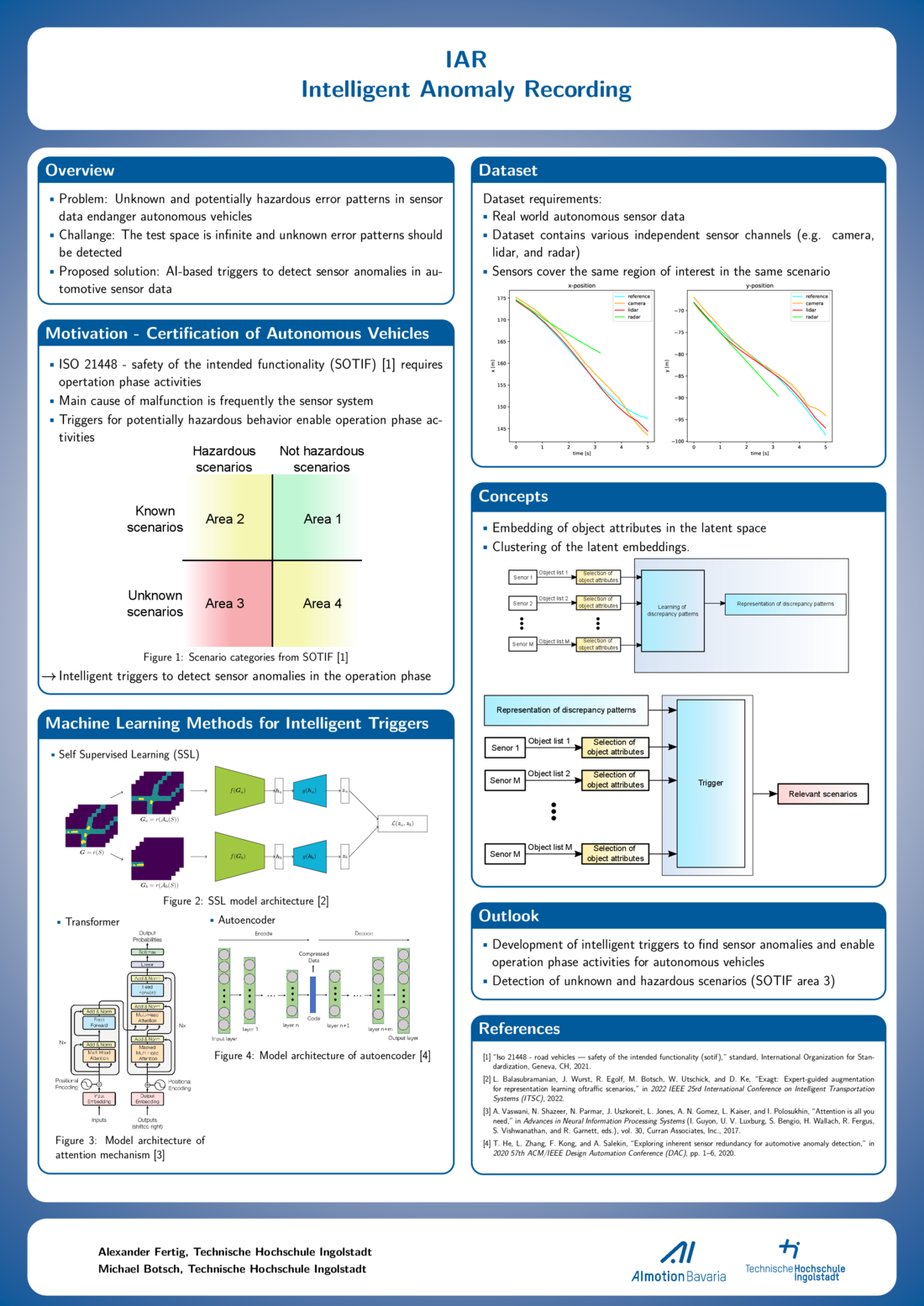Intelligent Anomaly Recording (IAR)
The development of automated driving has been greatly advanced by technical progress and new legal frameworks, however the safeguarding of corresponding automated systems still poses a major technical challenge.
For this purpose, ISO 21448 - Safety of the intended functionality (SOTIF) offers approaches on how verification and validation can be implemented for such systems. One particularly important aspect here is the activities during the operation of automated vehicles, the so-called "operation phase". Here, the driver in no way becomes an involuntary test object, since the functionality of the systems has been sufficiently tested by acceptance criteria. However, it is technically impossible to guarantee 100% confidence of the system against unknown and safety-critical errors, since the corresponding test effort would have to be almost infinitely large. One goal of ISO 21448 is therefore to minimize this residual risk by continuing to monitor the system during the operational phase to identify previously undetected systematic vulnerabilities or design gaps. For an entire fleet of highly automated vehicles, recording and evaluating all relevant data is practically impossible, which is why automation is being sought here as well. This is intended to detect conspicuous scenarios and thus trigger data recording.
The goal of this project is to use modern machine learning techniques to identify these conspicuous scenarios in an automated way. Corresponding scenarios are to be recorded in order to use them to eliminate previously unknown vulnerabilities or design gaps in the system. A particular focus is on anomaly detection and clustering.
THI Contact

Prof. Dr.-Ing. Michael Botsch
Phone: +49 841 9348-2721
Room: K209
E-Mail: Michael.Botsch@thi.de

Alexander Fertig, M.Sc.
Phone: +49 841 9348-6615
Room: U102
E-Mail: Alexander.Fertig@thi.de


![[Translate to English:] Logo Akkreditierungsrat: Systemakkreditiert](/fileadmin/_processed_/2/8/csm_AR-Siegel_Systemakkreditierung_bc4ea3377d.webp)








![[Translate to English:] Logo IHK Ausbildungsbetrieb 2023](/fileadmin/_processed_/6/0/csm_IHK_Ausbildungsbetrieb_digital_2023_6850f47537.webp)


